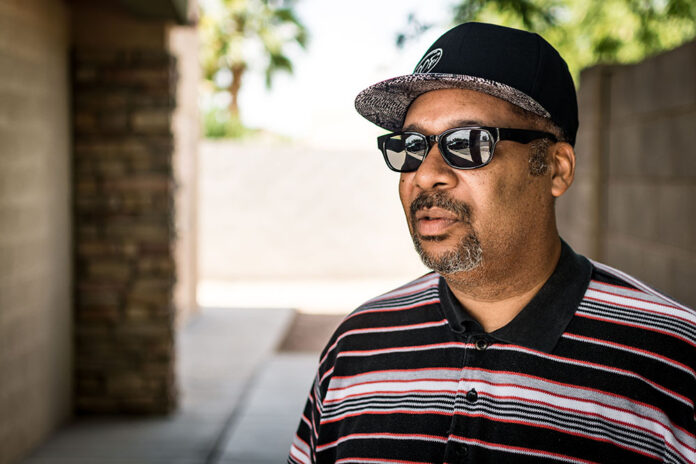
There is an old adage that declares people are not defined by what they have done in the past but instead by what they will do in the future.
If such wisdom holds true, one Maricopa resident and advocate for disadvantaged youth has taken on the mantle of a hero after leaving gang life and dedicating his future to helping those facing similar obstacles.
Now, a recently-released documentary chronicles the struggles of Rob Boyd, a once disadvantaged youth, who grew up fatherless on the streets of Detroit in the 1970s and ‘80s.
Boyd is a reformed drug dealer and former “crew leader” from Detroit’s “Black Bottoms” who made a small fortune during the drug trade that rocked the Motor City in the 1980s.
Now, as founder and chief executive officer of the national nonprofit The Streets Don’t Love You Back, Boyd recounts the path he traversed in “The Sons of a Preacher,” a film produced by his wife and co-founder of their organization, Lucinda Boyd.
The film largely focuses on how the absence of Boyd’s father, Robert Boyd Sr., negatively affected his life. The elder Boyd was a renowned evangelical preacher and author of numerous books – and had a following of thousands who at times even referred to him as a prophet.
Unbeknownst to most of those followers, Boyd Sr. had also fathered at least 12 children with as many as eight women, most of whom where secretaries or somehow employed in his offices.
For whatever reason, whether it was work, the constant traveling or numerous children, his father was almost entirely missing from Boyd’s life.
Going back to his youngest years, the film examines how, as a result of familial instability, Boyd was entrapped by gang life, which resulted in him and many of his siblings behind bars or worse.
By the time he was a teenager, Boyd had already seen the ugliest humanity had to offer, witnessing first-hand the murders of his family members and friends.
However, Boyd simultaneously started to succeed in the drug game.
“You could go on any corner in Detroit, at that time in the ‘70s, ‘80s and early ‘90s and make a million dollars a week, $100,000 or $200,000 a day sometimes,” Boyd said.
In retrospect, Boyd is not afraid to admit the nice cars, flashy clothes and fancy jewelry were all part of a façade covering the dirty underbelly of the beast. In the high stakes world of drugs, it didn’t take long for egos and greed to crash the game, sending players to prison or an early grave.
“You take one of mine, I’d have to take 10 of yours, you know,” Boyd said. “You got to. If not, then you lost respect.”
Things were different back in those days, Boyd claimed. Dealers, he said, took care of their neighborhoods. They would help people pay rent and buy groceries so kids wouldn’t become homeless or go hungry.
“Even if they were doing all the drugs, we were going to make sure their kids got to school and the rent got paid,” Boyd said.
Back then, he said, some members of his crew were only responsible for taking care of those in need.
“A lot of homies didn’t sell drugs,” Boyd said. “Their assignment was the Towers [the projects], to make sure the old people and kids had [food and rent money]. We made sure everybody was good, man.”
This vicious cycle, though lucrative, constantly pushed Boyd in and out of group homes and eventually prisons.
After almost three decades in the drug game, Boyd decided to better himself. He reconciled his troubled life with the reality of not having a father figure around.
He said though his life would have been much different had his father, the preacher, been around, he carries no more animosity toward the devout man who left him and his siblings without.
In 2007, Boyd reconnected with his father who was steadily settling into his death bed.
It was then Boyd learned he had more brothers and sisters than he had previously thought – seven more in fact.
His father had written their names in a notebook and told him about it. At first, Boyd admitted, he didn’t want to contact his siblings because he was still angry with his father.
“I wasn’t even going to write ‘em until my wife convinced me to write ‘em,” Boyd said. “It blew me away… to learn they were all in prison, I was like, ‘Damn.’”
Eventually, knowing his father was confined to a hospital bed, Boyd used the opportunity “to look him in his eyes” and tell him how he truly felt. And, in a moment of catharsis, he was able to forgive the man who may have condemned him and his siblings to their lives on the streets.
Boyd also eventually developed relationships with several of his siblings, some of whom are featured in the documentary, including several still in prison serving 30, 50 and even 100-year sentences.
One brother, Sidney Daniel, was tragically killed in a drive-by shooting shortly after meeting Boyd for the first and only time in 2011.
Nonetheless, Boyd presses on. Despite blaming his father’s hypocrisy for a lot of the bad in his life, Boyd still clings to his own faith.
“I realized what my father was doing and I didn’t have much respect for him; that’s why I never attended no one else’s church,” Boyd said. “I have my own relationship with God.”
The film paints an intimate portrait of the hardships associated with growing up in the ghetto without a father.
However, the film also emphasizes the change anyone, at any station in life, can make to better the world around them.
Like the man himself, the film shows people are not necessarily bound to the environment in which they are raised. Even the sons of a preacher can stumble, and even those who stumble can learn to walk again.
“I caused a lot of damage in the ‘hood, bringing drugs through the ‘hood for years,” Boyd said. “So, to get to do what I do now is more than a blessing.”
This story appears in the September issue of InMaricopa.


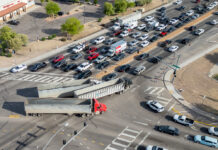

![Maricopa’s ‘TikTok Rizz Party,’ explained One of several flyers for a "TikTok rizz party" is taped to a door in the Maricopa Business Center along Honeycutt Road on April 23, 2024. [Monica D. Spencer]](https://www.inmaricopa.com/wp-content/uploads/2024/04/spencer-042324-tiktok-rizz-party-flyer-web-218x150.jpg)
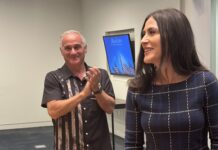

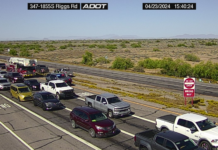

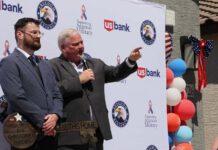



![Alleged car thief released without charges Phoenix police stop a stolen vehicle on April 20, 2024. [Facebook]](https://www.inmaricopa.com/wp-content/uploads/2024/04/IMG_5040-218x150.jpg)



![Maricopa’s ‘TikTok Rizz Party,’ explained One of several flyers for a "TikTok rizz party" is taped to a door in the Maricopa Business Center along Honeycutt Road on April 23, 2024. [Monica D. Spencer]](https://www.inmaricopa.com/wp-content/uploads/2024/04/spencer-042324-tiktok-rizz-party-flyer-web-100x70.jpg)